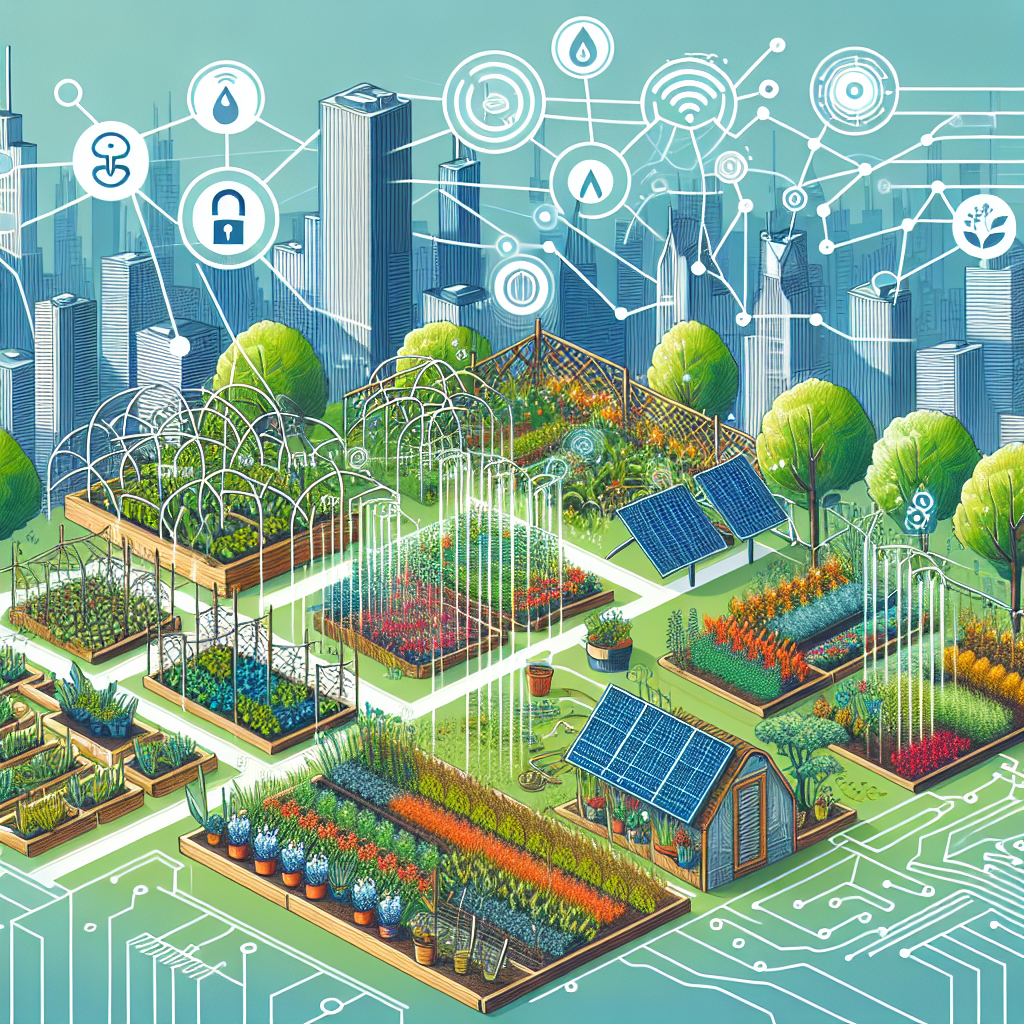The Impact of Community Gardens in Chicago
This article explores the benefits, role, case studies, challenges, and opportunities of community gardens in Chicago. It highlights the health and nutrition, environmental, social, and economic benefits of community gardens, and discusses the importance of urban agriculture in city planning. The article also explores policies and regulations supporting community gardens and presents case studies of successful community garden projects in Chicago. It addresses challenges such as land access, funding, and community engagement, and concludes with a call to action to encourage further research and professional dialogue on community gardening in Chicago.

Introduction
Community gardens have become an increasingly popular feature in cities across the United States. These gardens not only provide a green space for residents to grow their own food, but they also offer a range of benefits to individuals, communities, and the environment. In Chicago, community gardens have been established to address various issues, including food insecurity, environmental sustainability, and community building.
Benefits of Community Gardens in Chicago
Health and Nutrition Benefits
According to Dr. Samina Raja, a professor of Urban and Regional Planning at the University of Buffalo, "Community gardens have the potential to increase access to fresh, healthy produce and promote healthy eating habits." In Chicago, where some neighborhoods are considered food deserts, community gardens play a critical role in addressing food insecurity.
Environmental Benefits
Community gardens in Chicago contribute to environmental sustainability in several ways. First, they help reduce the urban heat island effect by providing shade and absorbing carbon dioxide. Second, they promote biodiversity by creating habitats for pollinators and other beneficial insects. Finally, they can help improve air and soil quality by reducing stormwater runoff and using organic gardening practices.
Social and Economic Benefits
Community gardens also provide social and economic benefits to Chicago communities. According to Jessica Christensen, the director of Chicago's Community Gardens Program, "Community gardens foster a sense of community and belonging, allowing residents to connect and build relationships with one another." Additionally, community gardens can help stimulate the local economy through the sale of surplus produce or by supporting local farmers markets.
The Role of Urban Agriculture in Chicago
Importance of Urban Agriculture in City Planning
Urban agriculture, including community gardens, plays a crucial role in city planning in Chicago. The Chicago Department of Planning and Development recognizes the importance of urban agriculture in creating sustainable and resilient communities. The Chicago Green Healthy Neighborhoods Initiative, for example, aims to integrate urban agriculture into the fabric of the city and improve access to healthy food for all residents.
Policies and Regulations Supporting Community Gardens
To support community gardens, the City of Chicago has implemented various policies and regulations. The Garden Grows Food Access and Health Initiative, for instance, provides grants to community garden projects that focus on addressing food insecurity in underserved communities. Additionally, the Green Urban Design Program offers guidance for incorporating community gardens and urban agriculture into sustainable development projects.
Case Studies: Successful Community Gardens in Chicago
Jackson Park Community Garden
The Jackson Park Community Garden, located in the Woodlawn neighborhood, has been an excellent example of a successful community garden in Chicago. Since its establishment in 2010, the garden has provided fresh produce to local residents, contributed to the revitalization of the neighborhood, and served as a gathering place for community events.
Peterson Garden Project
The Peterson Garden Project, founded in 2010, has transformed vacant lots into productive community gardens across various neighborhoods in Chicago. The project not only provides access to fresh produce but also offers gardening classes and educational programs to residents of all ages.
Altgeld Sawyer Corner Farm
The Altgeld Sawyer Corner Farm is an urban agriculture project that combines community gardening with sustainable farming practices. Located in the West Lawn neighborhood, this project has not only improved access to fresh food but has also created jobs and educational opportunities for local residents.
Challenges and Opportunities in Chicago Community Gardens
Land Access and Availability
One of the significant challenges faced by community gardens in Chicago is limited land access and availability. According to a study published in the Journal of Agriculture, Food Systems, and Community Development, the lack of affordable and secure land for community gardens can hinder their long-term sustainability.
Funding and Resource Allocation
Another challenge for community gardens is the lack of funding and resource allocation. Community gardens often rely on grants, donations, and volunteers to sustain their operations. The City of Chicago and various nonprofit organizations provide financial and technical support, but additional resources are needed to meet the growing demand for community gardens.
Community Engagement and Education
Community engagement and education are crucial for the success of community gardens. Educating the community about the benefits of community gardens, providing gardening and nutrition classes, and involving residents in the planning and maintenance of gardens can help strengthen community engagement and encourage long-term involvement.
Conclusion
Community gardens in Chicago have proven to be a valuable asset, providing numerous benefits in terms of health and nutrition, environmental sustainability, social connections, and economic opportunities. By recognizing the importance of urban agriculture in city planning, implementing supportive policies and regulations, and addressing challenges such as land access, funding, and community engagement, Chicago can continue to expand and enhance its community garden network.
Call to Action
Further research and professional dialogue on community gardening in Chicago are essential for addressing the challenges and opportunities associated with these urban green spaces. By exploring innovative approaches to land use and allocation, seeking additional funding sources, and engaging communities in the planning and maintenance of community gardens, professionals in various fields can contribute to the growth and success of community gardening in Chicago.